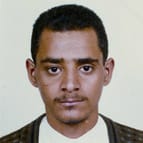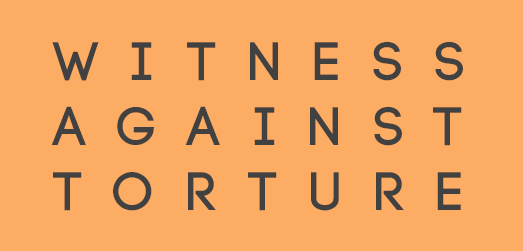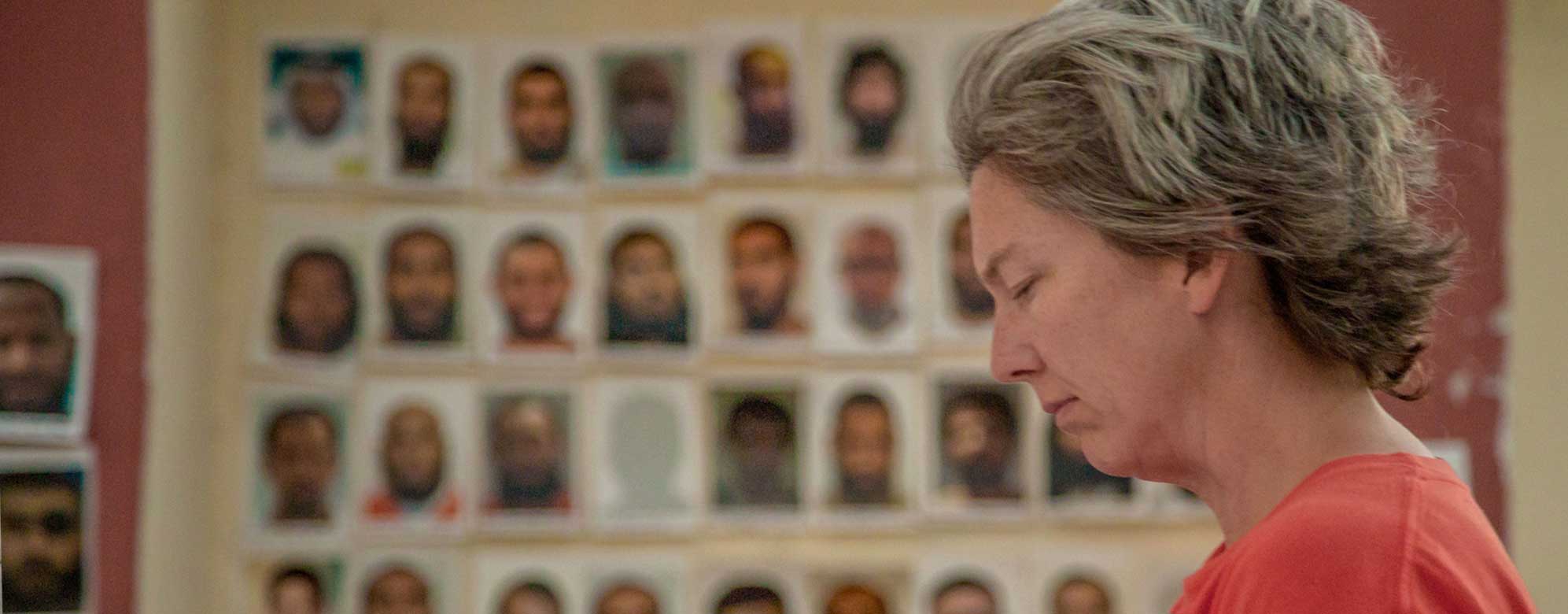Prisoner ISN 156
Adnan Latif

They are artists of torture,
They are artists of pain and fatigue,
They are artists of insults and humiliation.
Where is the world to save us from torture?
Where is the world to save us from the fire and sadness?
Where is the world to save the hunger strikers?
– Adnan Latif
Poems from Guantánamo*
* Written under duress and published with great difficulty in 2007 by The University of Iowa Press, Poems from Guantánamo is a collection of 22 poems from seventeen of the detainees. A brief biographical statement about each detainee is provided before the poems. As the collection’s editor Mark Falkoff writes, “Many of the men at Guantánamo turned to writing poetry as a way to maintain their sanity, to memorialize their suffering and to preserve their humanity through acts of creation…. Perhaps their poems will prick the conscience of the nation.”
If This Is a Man
We mourn the death of the Adnan Latif. Originating from Yemen, Adnan Latif was sold for bounty at the Pakistan/Afghanistan border in 2001, was one of the first men to be brought to the camp back in 2002, suffered torture including solitary confinement for the first three years, then willingly undertook a hunger strike for justice for over six months in 2005, was later held at the base psychiatric ward due to his deteriorating mental health, and was forbidden under a moratorium – like the other fifty-six Yemeni men detained at Guantánamo yet cleared for release since 2009 – by the Obama administration to return to Yemen because of that country’s instability. At the time of his death at the age of thirty-six years old, Adnan Latif spent ten years, seven months, and twenty-five days detained at Guantánamo.
In Search of Affordable Medical Care
As Judge Kennedy wrote in his 2010 decision for Adnan’s release: “It is undisputed that in 1994, he [Adnan Latif] sustained head injuries as the result of a car accident and the Yemeni government paid for him to receive treatment at the Islamic Hospital in Amman, Jordan.” However, the treatment was incomplete and Adnan Latif spent the next few years searching for affordable health care. In the Yemen Ministry of Defense’s “Military Medical Decision Form” dated July of 1995, his diagnosis still reported “1) Loss of sight in left eye as a result of eye nerve damage. 2) Loss of hearing in the ears.” And after finding the same health results in another medical report dated August of 1999, the doctors “recommend that he return to the previous center outside for more tests and therapeutic and surgical procedures at his own expense” (our italics).
The vast difference of health care systems in this part of the world lends credibility to Adnan Latif’s need/recommendation to find medical care outside of Yemen. In fact, despite the significant progress that Yemen has made in its health care system, as of 2004 there were only three doctors per 10,000 people. In 2001, Adnan Latif traveled to Pakistan and Afghanistan where he heard of a charitable health care office of a Pakistani aid worker that might help him. Soon afterwards, it was there that he was arrested. It is important to note that these medical documents were deemed not admissible during Adnan Latif’s “status” hearing in 2004, and yet, with these documents in hand, Judge Kennedy found that the prosecutors did not meet the adequate proof for Adnan Latif’s involvement with al Qaeda.
Hunger Strike for Basic Human Rights
Even with the medical treatment at the detention center being almost nonexistent, the condition of confinement is horrific. The punishment for disobeying even arbitrary disciplinary rules includes solitary confinement, no comfort items, no mattress, no pants, etc. In 2007, Adnan Latif participated in a hunger strike which lasted for over six months. As a result, Mark Folkoff explains, “Twice a day, the guards immobilize Latif’s head, strap his arms and legs to a special restraint chair, and force-feed him a liquid nutrient by inserting a tube up his nose and into his stomach a clear violation of international standards. The feeding, Latif says, ‘is like having a dagger shoved down your throat.’” In 2008, Latif Adnan lost a Federal Court case for his plea for a blanket and mattress in his cell. In his decision, Chief Judge Thomas F. Hogan reasons, “While the Supreme Court’s decision in Boumediene gives [Latif] the right to challenge the fact of his confinement, it says nothing of his right to challenge the conditions of his confinement.” With this evidence, the physical and psychological torture perpetrated at Guantánamo is systematic and legally upheld.
A Kafkaesque Legal Nightmare
Adnan Latif remained in custody until his death despite the determination of Department of Defense in 2004 that he “is not known to have participated in combatant/terrorist training” and a 2007 determination that Adnan Latif should be transferred away from Guantánamo Bay “subject to the process for making appropriate diplomatic arrangements for his departure.” What we have also learned from the Wikileaks documents illegally released was that Adnan Latif was repeatedly found to be innocent by the Joint Task Force of Guantánamo in 2008 and again by the Guantánamo Review Task Force established by the Obama administration in 2009. And in public court, we knew of a Washington DC judge who ordered his release from detention in 2010. This last ruling was quickly appealed by the Obama administration’s prosecutors and later overturned in 2011. Furthermore, Amnesty International was just about to launch a worldwide campaign on his behalf. And then he was found dead in his cell. It was a death he has long despairingly desired. Dubiously reported to be an overdose, like the other eight deaths at the camp since 2002 there will be no independent investigation.
Adnan Latif’s Own Words
The following is a letter Adnan Latif wrote to his lawyer on December 26, 2010:
David Remes,
Do whatever you wish to do, the issue is over.
I am happy to express from this darkness and draw a true picture of the condition in which I exist. I am moving towards a dark cave and a dark life in the shadow of a dark prison. This is a prison that does not know humanity, and does not know [anything] except the language of power, oppression and humiliation for whoever enters it. It does not differentiate between a criminal and the innocent, and between the right of the sick or the elderly who is weak and is unable to bear and a man who is still bearing all this from the prison administration that is evil in mercy.
Hardship is the only language that is used here. Anybody who is able to die will be able to achieve happiness for himself, he has no other hope except that. The requirement is to announce the end, and challenge the self love for life and the soul that insists to end it all and leave this life which is no longer anymore called a life, instead it itself has become death and renewable torture. Ending it is a mercy and happiness for this soul.
I will not allow any more of this and I will end it. I will send [move] it to a world that is much better than this world. There, the real life will live again that will be filled with complete happiness and be rid of all harassments. There, the environment will clear up, things will calm down and you will be able to relax and you will not see the world of evil people.
I am in need of a person who blindfolds his eyes from me [looks the other way] and leaves me in my freedom so that I can choose my end. With all my pains, I say goodbye to you and the cry of death should be enough for you.
A world power failed to safeguard peace and human rights and from saving me. I will do whatever I am able to do to rid myself of the imposed death on me at any moment of this prison.
156
Shut Down Guantánamo
When Luke Hansen was covering the military commission procedures at Guantánamo last October, he overheard a reporter from Fox News say of Adnan Latif, “I think he died from hopelessness.” Adnan did, indeed, embody everything that is unjust about Guantánamo, Bagram and the other detention centers we have yet to know about. We too must not lose love, lose hope, lose indignation, lose whatever it is that springs from truth and justice within us and our community to stop indefinite detention without due process and close down these centers of darkness and death.



Join us on social media